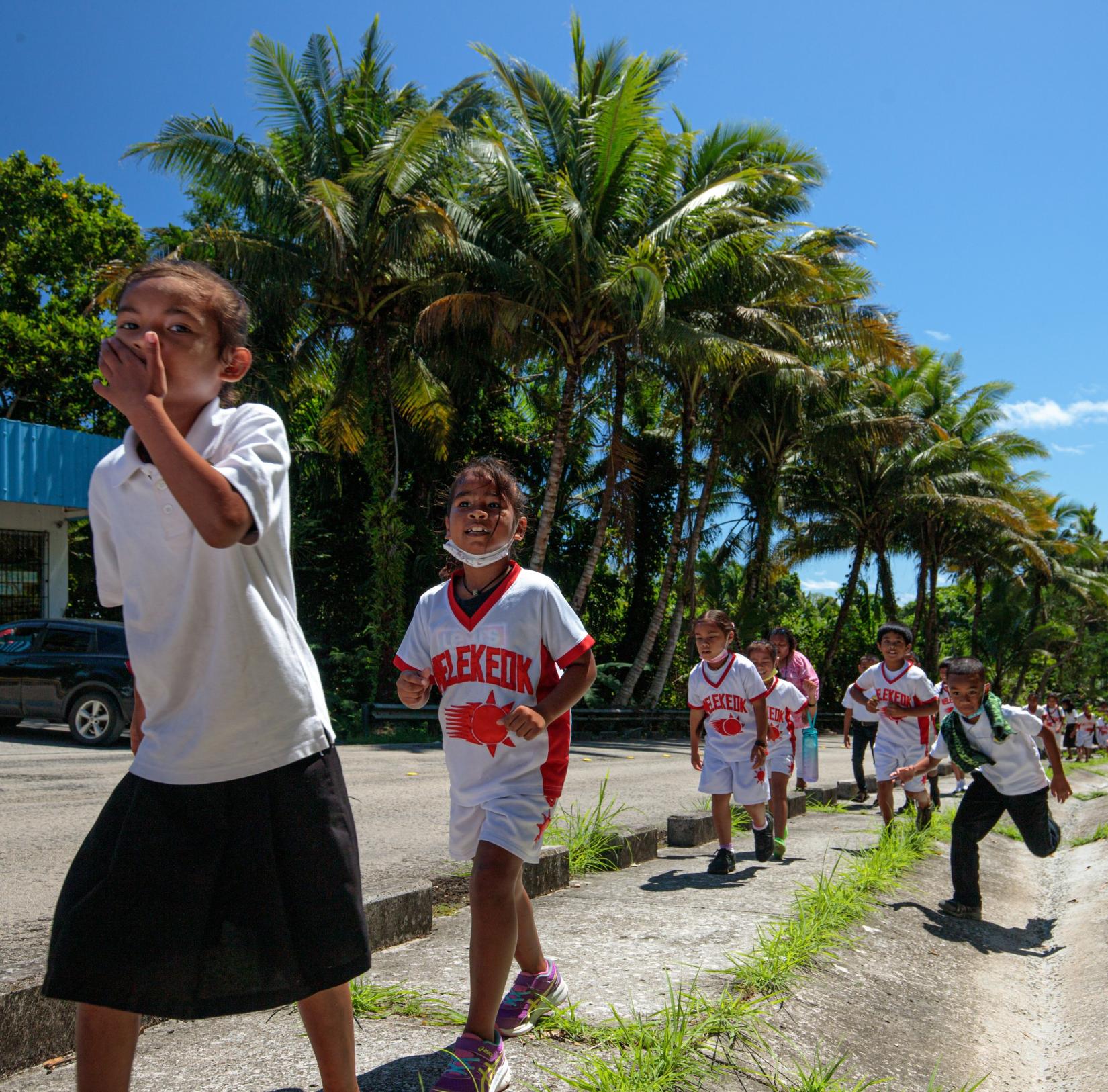Republic of Palau

The United Nations in Palau
Palau is globally recognized for ocean leadership, ambitiously protecting 80% of its 603,978 square kilometers, exclusive economic zone from all forms of economic exploitation. This tropical archipelago, in the western Pacific Ocean, has over 340 limestone, atoll and volcanic islands, landmass totaling 466 square km and 1,519 km of coastline. Palau is also best known for unique limestone islands that make up part of the Rock Islands Southern Lagoon, a natural and cultural UNESCO World Heritage Site. 18,000 people live in Palau – about 63% concentrated in Koror, the main urban center. The rest of the population live on rural, coastal areas of Babeldaob and outlying islands.
Palau is ranked 80th out of 188 countries in human development index (HDI 2021), placing 3rd in the Pacific, after Australia and New Zealand. Like all SIDS, Palau is vulnerable to natural hazards and the climate crisis. Palau’s economy is mainly based on tourism and is thus vulnerable to global markets and shocks. Poverty rates are high – nearly 20% struggle to meet the high costs of the basic needs.
Palauans maintain their unique cultural heritage with an active traditional governance system and traditional practices. As a matrilineal society, Palauan women hold traditional leadership roles in families and clans, complimenting traditional male leaders, extending to the wider community. Women are generally under-represented in public leadership and decision-making roles.
Palau is working with multilateral partners to rebuild a resilient and sustainable society through its Blue Prosperity Plan based on sustainable management of marine resources and sustainable tourism development.
UN presence in Palau
In 2008, the UN established a joint presence of three agencies in Palau. Today, seven agencies are based in Palau, and there are a total of eighteen (18) agencies, funds and programmes that work with Palau partners: FAO, IAEA, ILO, IOM, OHCHR, UN Women, UNCTAD, UNDP, UNDRR, UNEP, UNESCO, UNFPA, UNICEF, UNOCHA, UNODC, UNOPS, WFP, and WHO.
Development goals and objectives
The UN Sustainable Development Cooperation Framework (UNSDCF) 2023 - 2027 is a five-year strategic framework that outlines the collective response of the UN system to the development priorities in 14 Pacific Island countries and territories, including Palau, and supports governments and peoples in the Pacific to advance a localised response to the global 2030 Agenda for Sustainable Development. The UNSDCF 2023-2027 focuses on strengthening partnerships to support countries in four interlinked areas of Planet, People, Prosperity, and Peace, to ensure that no one is left behind, that people are equal and free to exercise their fundamental rights, to promote gender equality and peace, and to enable nations and their communities to become resilient to existential threats.
The UNSDCF complements the Palau National Master Development Plan 2020: “Sustainable and widespread improvement in general standards of living while preserving cultural and environmental values for the people of Palau”; particularly in the areas of climate change, oceans, disaster risk reduction, infrastructure, tourism, health and education.

